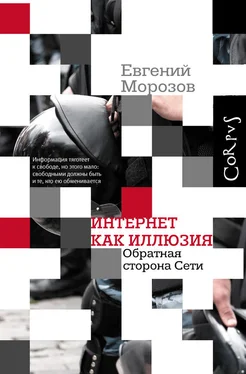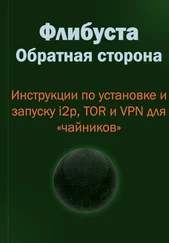Vietnam Launches Own Social Network Site // Agence France-Presse, May 22, 2010.
Vietnam Politics: A State-Run Social Networking Website Is Launched // EIU ViewsWire, June 7, 2010.
Vietnam Steps Up China-Style Internet Control // Agence France-Pres-se, July 1, 2010.
Villeneuve, Nart, and Greg Walton “ 0 day”: Civil Society and Cyber Security . Malware Lab, October 28, 2009. malwarelab. org/2009/10/0day-civil-society-and-cyber-security/.
Wells-Dang, A. Political Space in Vietnam: A View from the “Rice-Roots” // Pacific Review 23, no. 1 (2010): 93–112.
Wigglesworth, Robin UAE Comments Raise Fears of Crackdown on Black-Berry // Financial Times, July 26, 2010.
Wines, Michael In Restive Chinese Area, Cameras Keep Watch // New York Times, August 2, 2010.
Wondracek, G., Holz, T., Kirda, E., Antipolis, S., and
C. Kruegel A Practical Attack to De-Anonymize Social Net-work Users / In: 2010 IEEE Symposium on Security and Privacy , 223–238. 2010.
Young, Martin J. Vietnam Strengthens Firewall // Asia Times On-line, June 19, 2010. www.atimes.com/atimes/Global_Economy/ LF19Dj03.html.
Zetter, Kim Tor Researcher Who Exposed Embassy E-mail Passwords Gets Raided by Swedish FBI and CIA // Threat Level, Wired, No-vember 14, 2007. www.wired.com/threatlevel/2007/11/swedish-researc/.
Глава 7. Кьеркегор против диванных активистов
Agre, P. E. The Practical Republic: Social Skills and the Progress of Citi-zenship // Community in the Digital Age: Philosophy and Practice (2004): 201–223.
Alexander, M. G., and S. Levin Theoretical, Empirical, and
Practical Approaches to Intergroup Conflict // Journal of Social Is-sues 54, no. 4 (1998): 629–639.
Alinsky, Saul David Rules for Radicals: A Practical Primer for Re-alistic Radicals . New York: Vintage Books, 1989.
Arguello, J., Butler, B. S., Joyce, E., Kraut, R., Ling,
K. S., RosÉ, C., and X. Wang Talk to Me: Foundations for Successful Individual-Group Interactions in Online Communities / In: Proceedings of the SIGCHI Conference on Human Factors in Computing Systems, 968. 2006.
Bakardjieva, M. Virtual Togetherness: An Everyday-Life Perspective //
Media, Culture & Society 25, no. 3 (2003): 291.
Bargh, J. A., and K. Y. McKenna The Internet and Social Life //
Annual Review of Psychology 55 (2004): 573.
Beenen, G., Ling, K., Wang, X., Chang, K., Frankowski, D.,
Resnick, P., and R. E. Kraut Using Social Psychology to Mo-tivate Contributions to Online Communities / In: Proceedings of the 2004 ACM Conference on Computer Supported Cooperative Work, 221. 2004.
Bennett, Drake Protesters’ Secret: They’re Out There Because It
Makes Them Happier // Boston Globe, October 11, 2009.
Bennett, W. L. Changing Citizenship in the Digital Age . Cambridge, MA: MIT Press, 2008.
Bennett, W. Communicating Global Activism // Information, Com-munication & Society 6, no. 2 (2003): 143–168.
Billig, M., and H. Tajfel Social Categorization and Similarity in Intergroup Behaviour // European Journal of Social Psychology 3, no. 1 (1973): 27–52.
Bimber, B., Flanagin, A. J., and C. Stohl Reconceptualizing Collective Action in the Contemporary Media Environment // Communication Theory 15, no. 4 (2005): 365–388.
Blears, James Information Revolution Breathes Life into Alliance of Youth Movements // Fox News, October 18, 2009.
Borgmann, Albert Technology and the Character of Contempo-rary Life: A Philosophical Inquiry . Chicago: University of Chicago Press, 1987.
Bornstein, G., Crum, L., Wittenbraker, J., Harring, K., Insko, C. A., and J. Thibaut On the Measurement of Social Orientations in the Minimal Group Paradigm // European Journal of Social Psychology 13, no. 4 (1983): 321–350.
Boudreaux, Richard Rent-a-Crowd Entrepreneurs in Ukraine Find People Fast to Cheer or Jeer for Any Cause // Wall Street Jour-nal, February 5, 2010.
Bratich, Jack Z. The Fog Machine // CounterPunch, June 22, 2009. www.counterpunch.org/bratich06222009.html.
Chidambaram, L., and L. L. Tung Is Out of Sight, Out of Mind? An Empirical Study of Social Loafing in Technology-Supported Groups // Information Systems Research 16, no. 2 (2005): 149.
Chin, M. G., and C. G. McClintock The Effects of Intergroup Discrimination and Social Values on Level of Self-Esteem in the Minimal Group Paradigm // European Journal of Social Psycho-logy 23, no. 1 (1993): 63–75.
Christopherson, K. M. The Positive and Negative Implications of Anonymity in Internet Social Interactions // Computers in Human
Behavior 23, no. 6 (2007): 3038–3056.
Dahlgren, P. Doing Citizenship: The Cultural Origins of Civic Agency in the Public Sphere // European Journal of Cultural Stu-dies 9, no. 3 (2006): 267.
Davis, A. New Media and Fat Democracy: The Paradox of Online Par-ticipation // New Media & Society (2009).
Davis, Angela Y. Abolition Democracy: Beyond Empire, Prisons, and Torture . New York: Seven Stories Press, 2005.
Daum, Megham Not Sold on RentAFriend // Los Angeles Times, July 8, 2010.
Della Porta, D., and L. Mosca Global-Net for Global Movements? A Network of Networks for a Movement of Movements // Journal of Public Policy 25, no. 1 (2005): 165–190.
Diehl, M. The Minimal Group Paradigm: Theoretical Explanations and Empirical Findings // European Review of Social Psychology 1, no. 1 (1990): 263–292.
Digital Revolution // Statesman, June 9, 2009.
Dreyfus, Hubert L. Anonymity Versus Commitment: The Dangers of Education on the Internet // Ethics and Information Technology 1, no. 1 (1999): 15–20.
Dreyfus, Hubert L. Kierkegaard on the Internet: Anonymity vs. Commitment in the Present Age // Kierkegaard Studies: Yearbook (1999): 96–109.
Dreyfus, Hubert L. On the Internet . Thinking in Action. New York: Routledge, 2001.
Duncan, W. J. Why Some People Loaf in Groups While Others Loaf Alone // Academy of Management Executive (1993–2005) 8, no. 1 (1994): 79–80.
Faris, D. Revolutions Without Revolutionaries? Network, Theory, Facebook, and the Egyptian Blogosphere // Arab Media and Society (2008).
Flanagin, A. J., Stohl, C., and B. Bimber Modeling the Struc-ture of Collective Action // Communication Monographs 73, no. 1 (2006): 29–54.
Funding Opportunity Title: New Empowerment Communication Technologies: Opportunities in the Middle East and North Africa . U. S. Department of State, September 15, 2009. mepi.state.gov/op-portunities/129624.htm.
Garff, Joakim Søren Kierkegaard: A Biography . Princeton, NJ: Princeton University Press, 2005.
Garrett, R. K. Protest in an Information Society: A Review of Lit-erature on Social Movements and New ICTs // Information, Com-munication & Society 9, no. 2 (2006): 202–224.
Geen, R. G. Social Motivation // Annual Review of Psychology 42, no. 1 (1991): 377–399.
Giridharadas, Anand “Buycotting”: Boycotts Minus the Pain // New York Times, October 10, 2009.
Greer, C., and E. McLaughlin We Predict a Riot? Public Order Policing, New Media Environments and the Rise of the Citizen Jour-nalist // British Journal of Criminology (2010).
Harkins, S. G., and R. E. Petty Effects of Task Difficulty and Task Uniqueness on Social Loafing // Journal of Personality and Social Psychology 43, no. 6 (1982): 1214–1229.
Heil, Alan L. Voice of America: A History . New York: Columbia Uni-versity Press, 2003.
Читать дальше
Конец ознакомительного отрывка
Купить книгу











